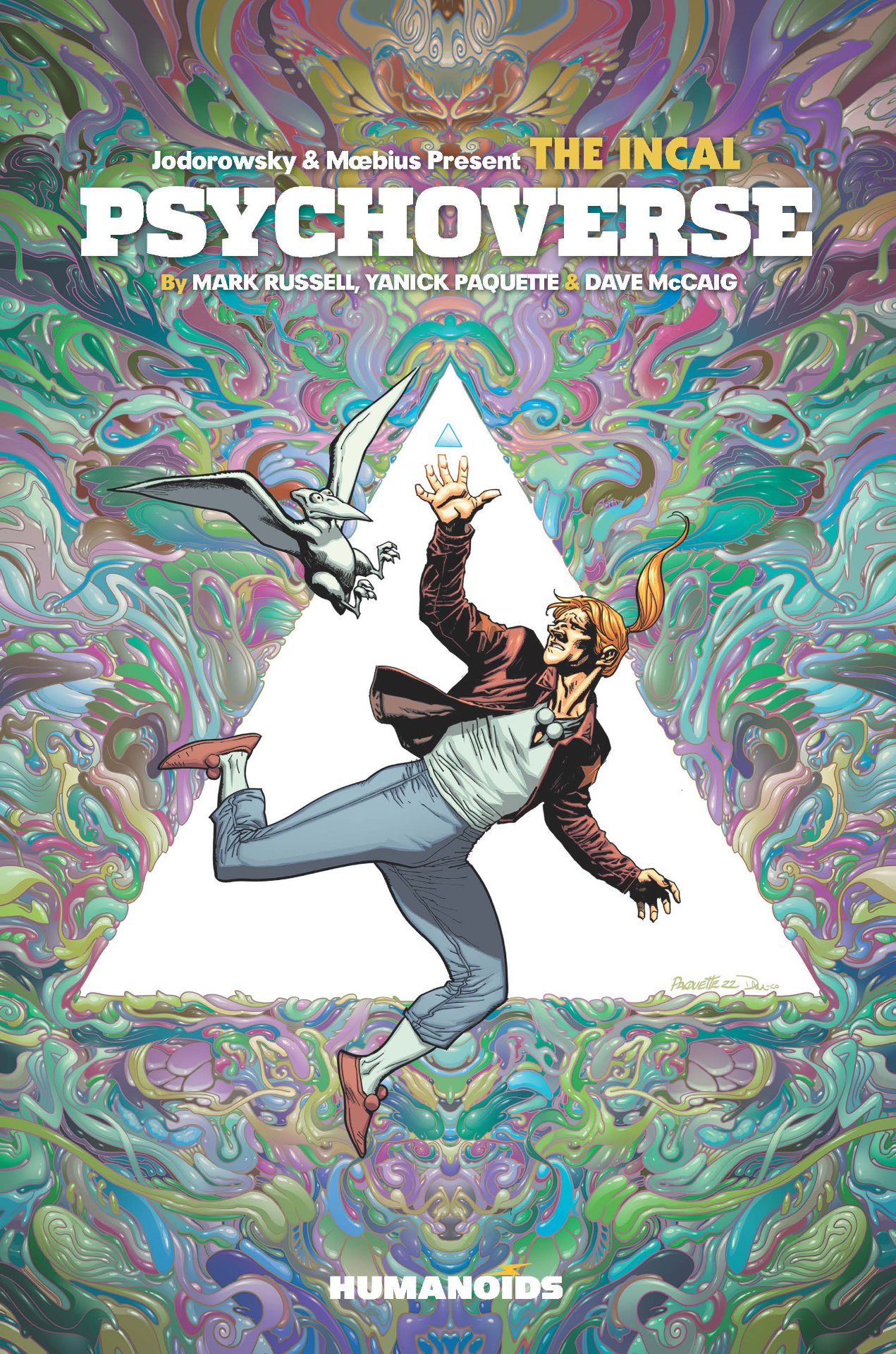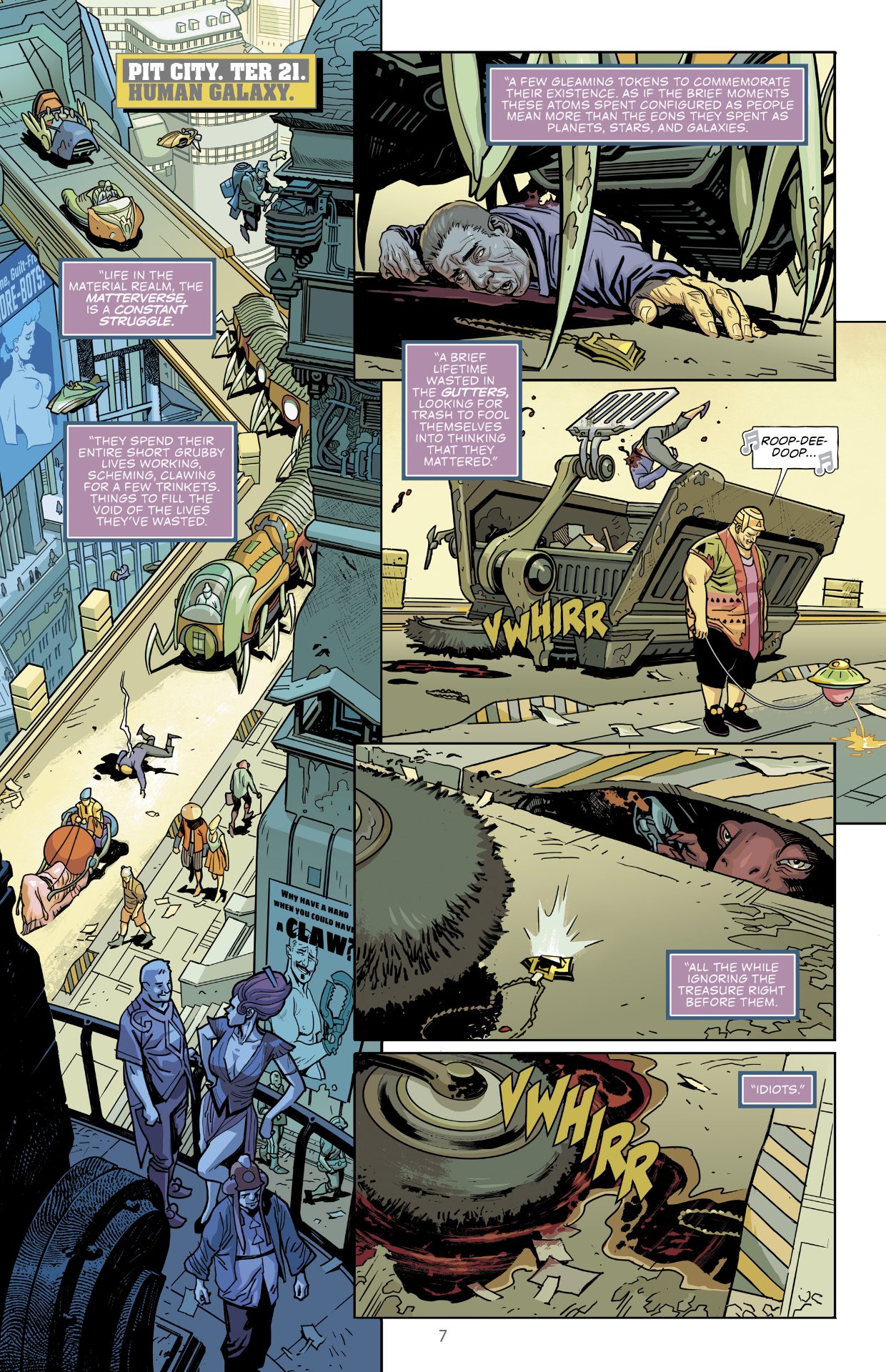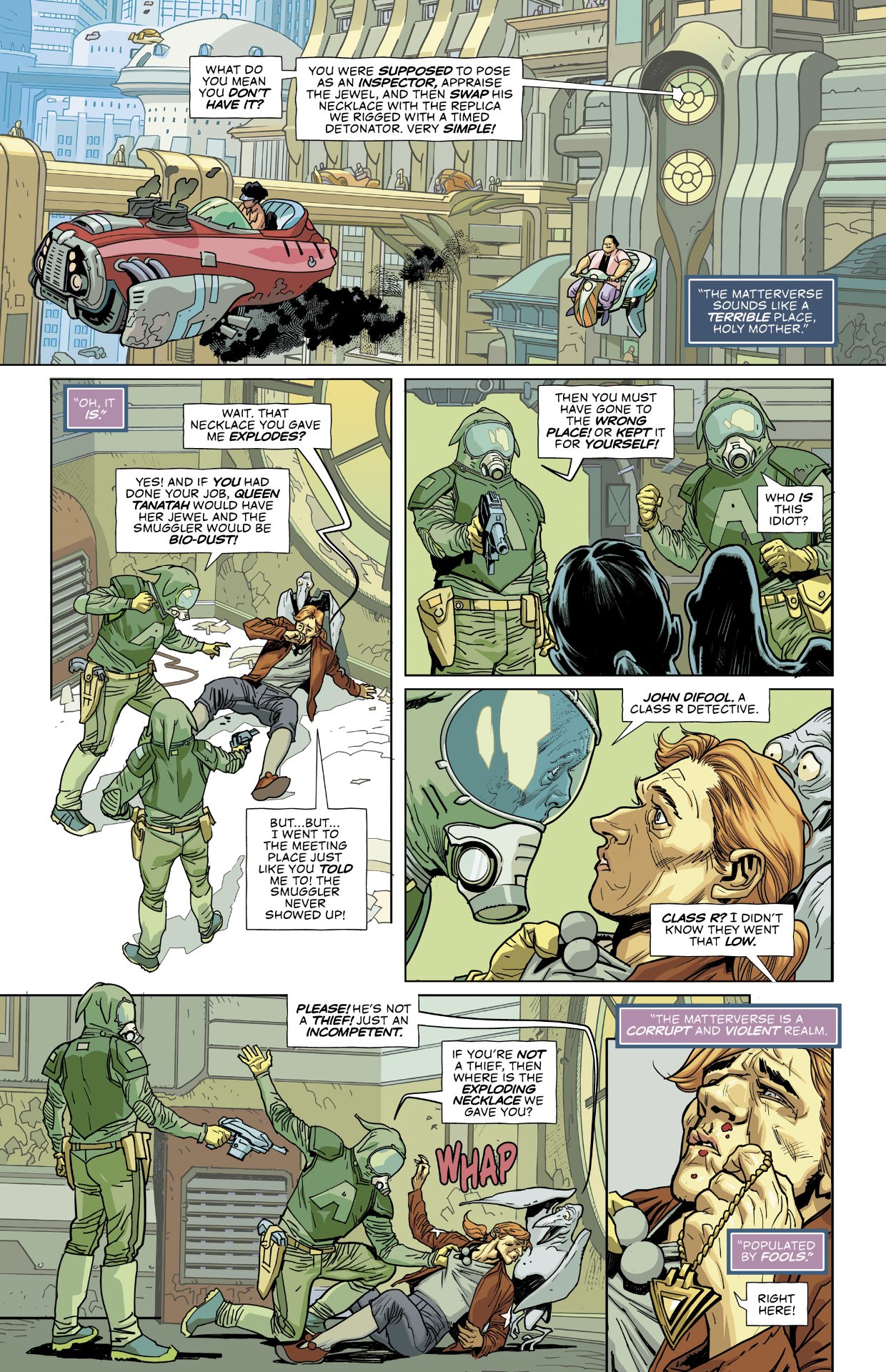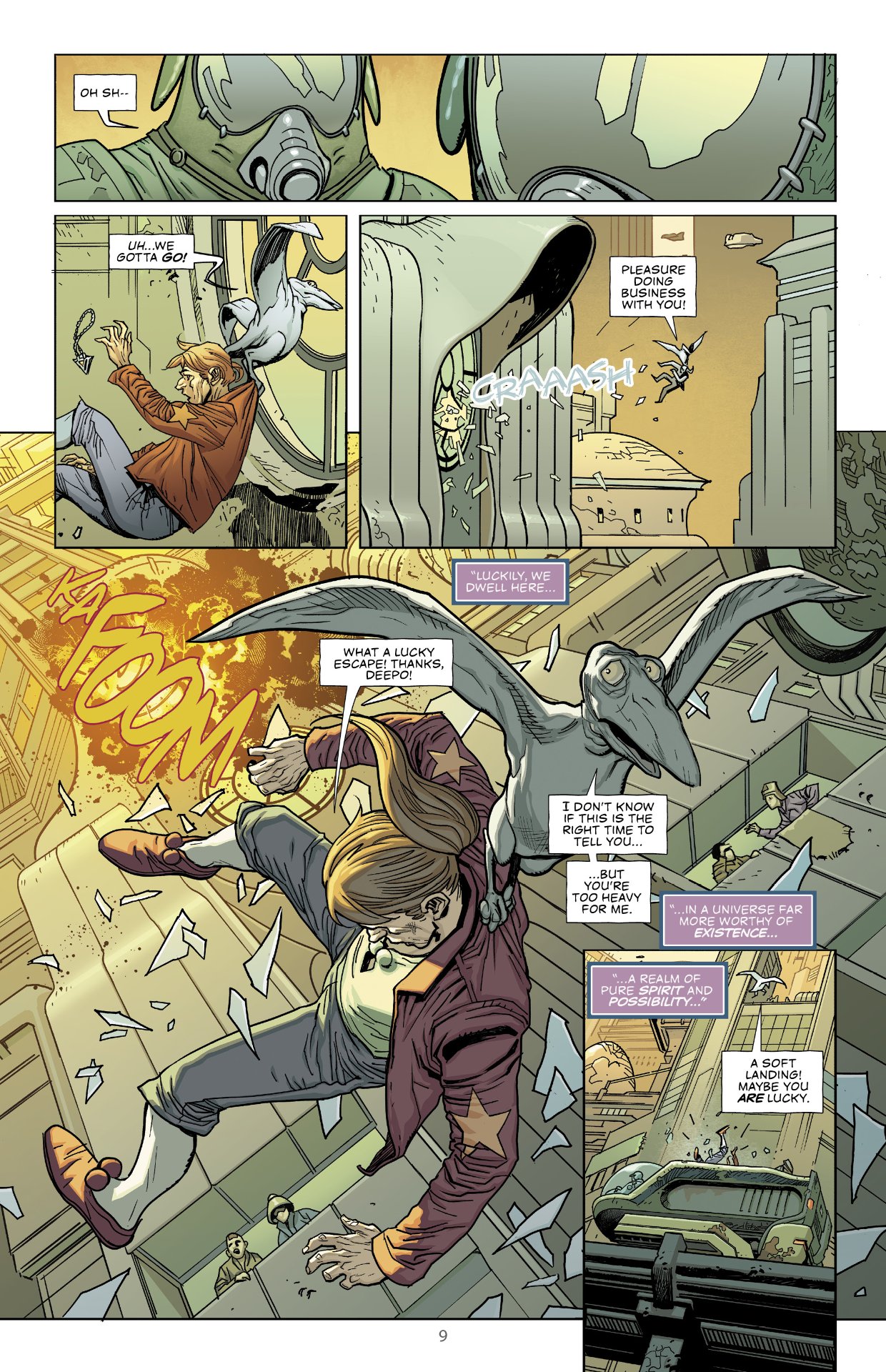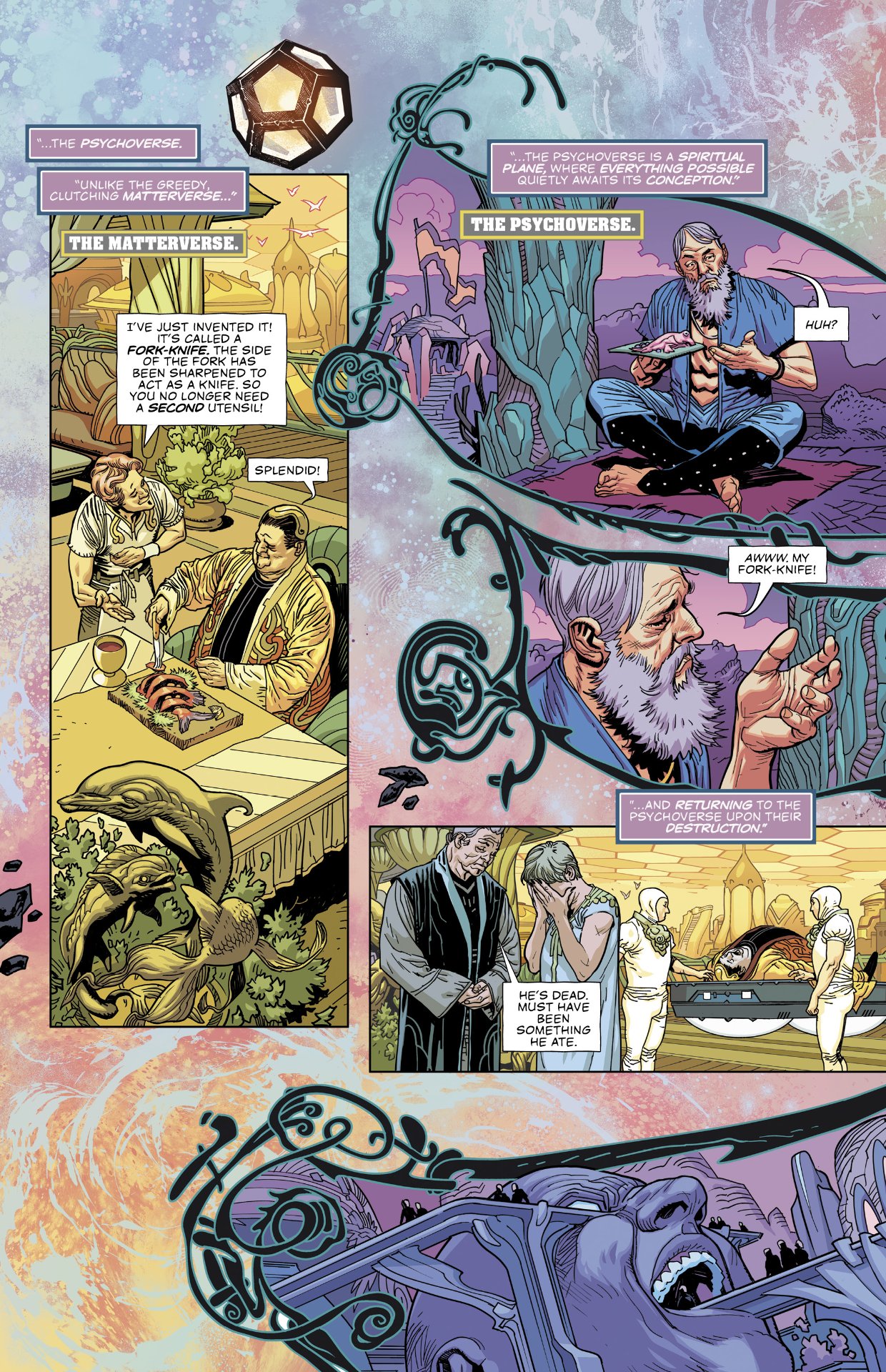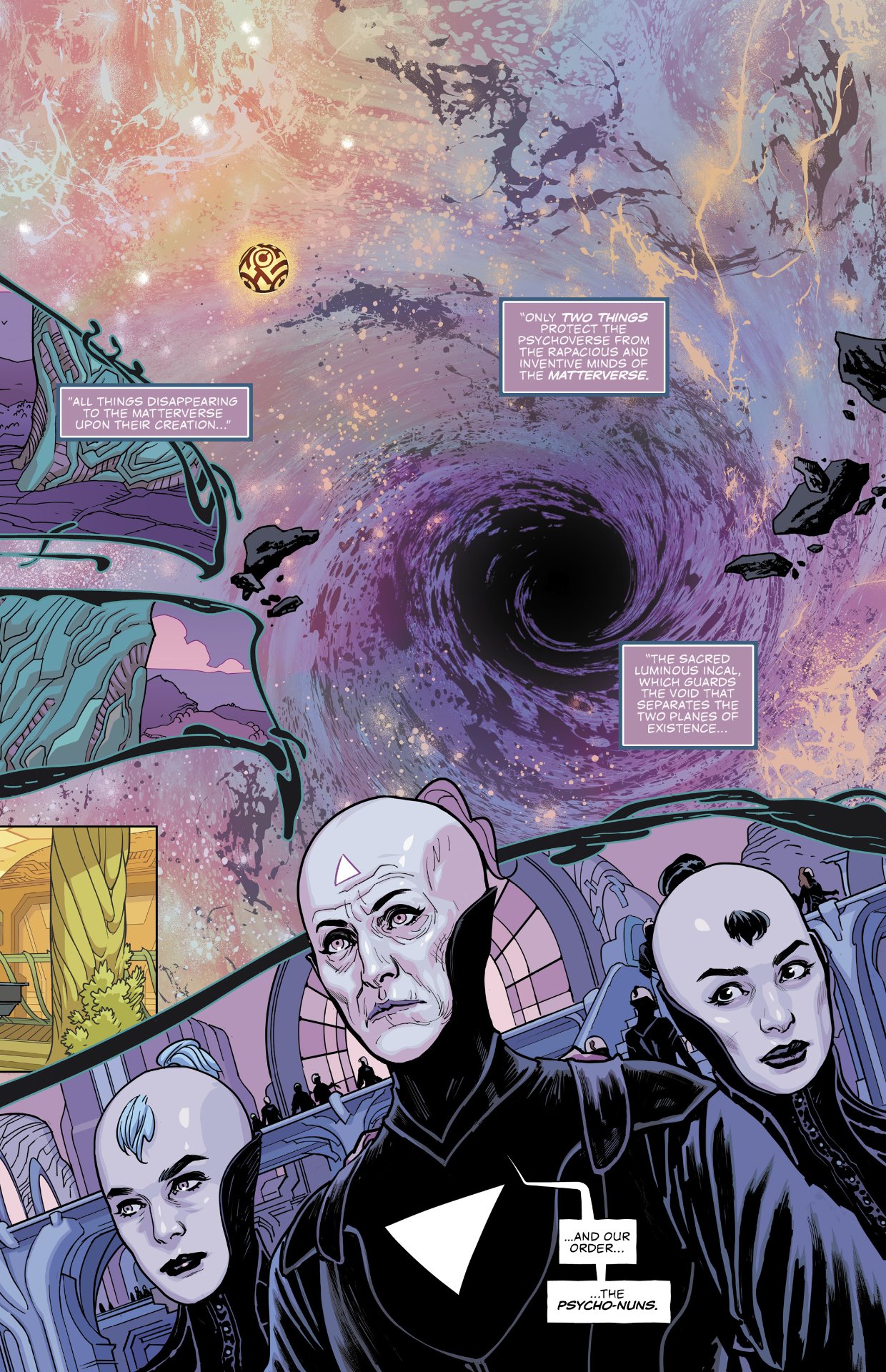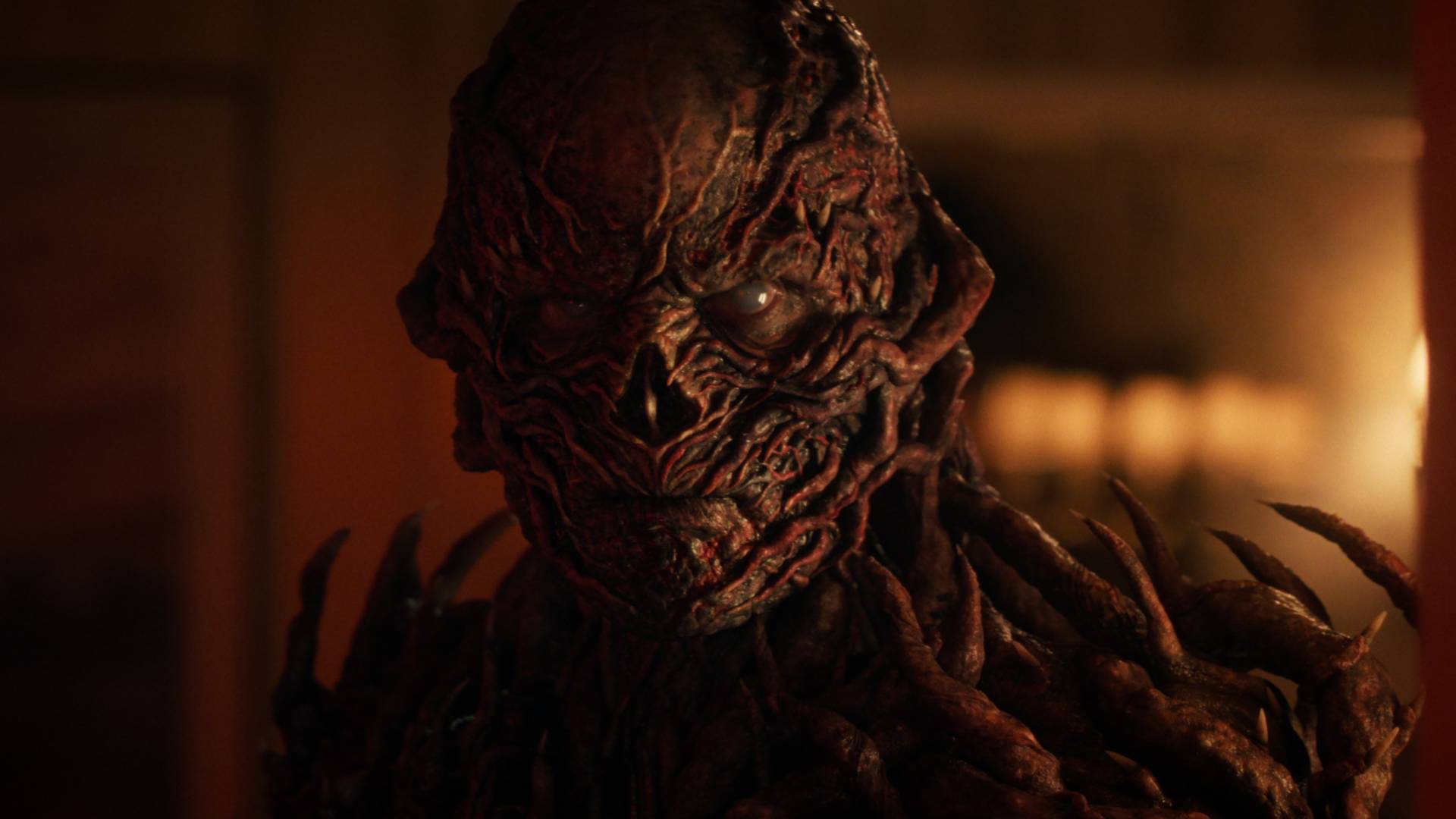The Incal: Psychoverse reunites Russell and Paquette for a prequel to the epic sci-fi saga
Mark Russell and Yanick Paquette explore The Incal: Psychoverse and adding lore to the seminal sci-fi epic
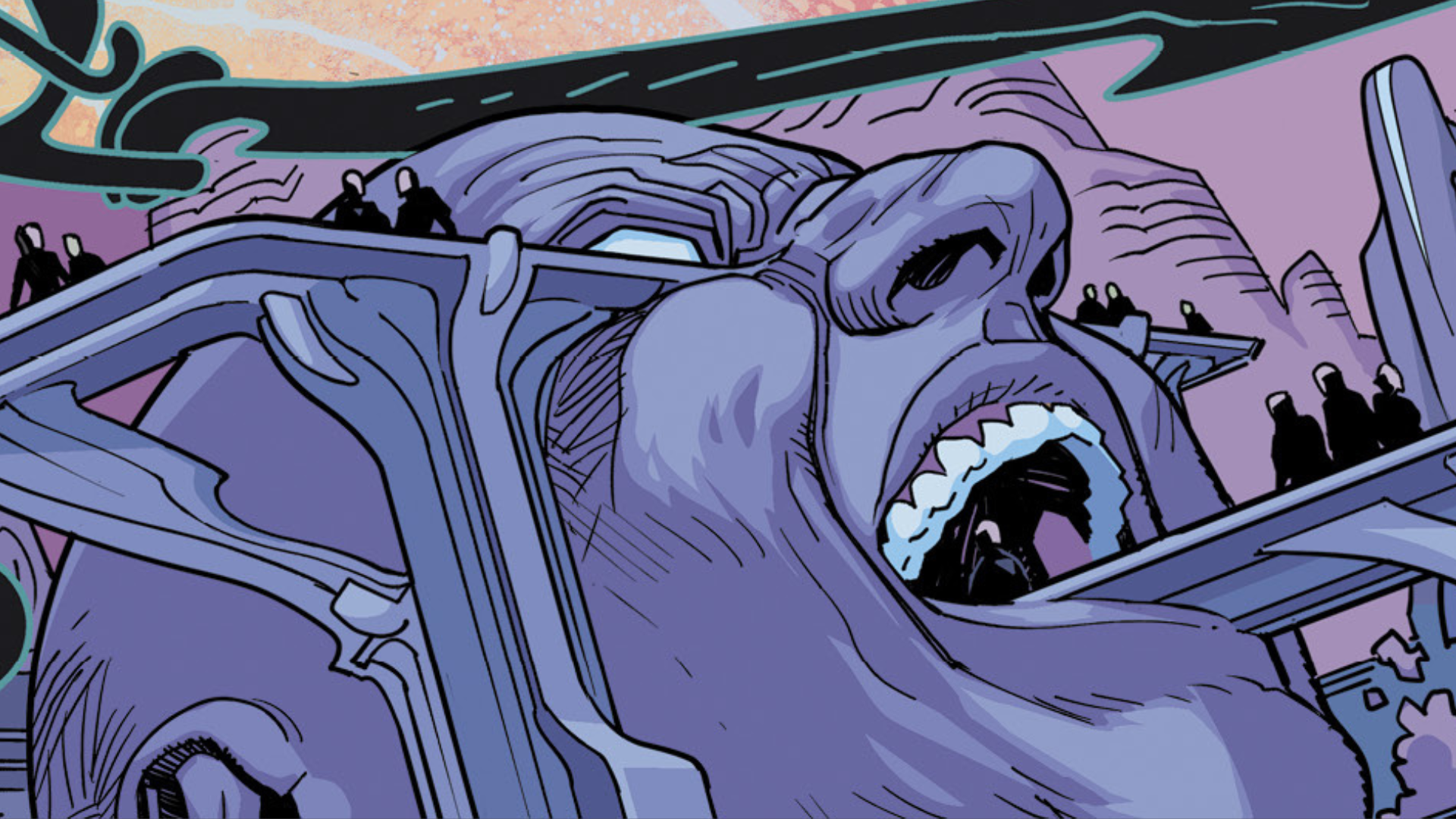
In the 1970s, writer Alejandro Jodorowsky and artist Jean Giraud AKA Mœbius began work on a film adaptation of Dune, which they ultimately abandoned. A decade later, the creative duo took concepts and artwork from that project and turned them into The Incal, a French graphic novel series that was originally serialized in the magazine Métal Hurlant between 1980 and 1988.
The Incal has since become one of the most famous sci-fi comics of all time, with an expansive universe spanning four books in the main series and three different spin-offs.
Now, writer Mark Russell and artist Yanick Paquette have reunited after their work on DC's Year of the Villain and teamed up with colorist Dave McCaig and letterer Troy Peteri for a prequel, The Incal: Psychoverse, which dovetails with the start of the original saga.
The Incal: Psychoverse will hit shelves November 15 from Humanoids, more than two years after Russell wrote the original script. The story explores two worlds - the Psychoverse and the Matterverse - as Incal characters Metabaron, Kill Wolfhead, and John Difool attempt to save the material world from the deadly Psycho-nuns.
Ahead of the book's release, Newsarama chatted with Russell and Paquette about their history with The Incal saga, adding to the lore, and how they hope more readers of western comics will get into the Incal universe - potentially through this prequel.
Samantha Puc for Newsarama: Mark, Yanick, how does it feel to be adding all of this new lore to The Incal saga? How did you go about approaching that?
Mark Russell: Well, it's daunting because it's something that I personally have a tremendous amount of respect for, and I know there's nothing people would less rather read than somebody trying to walk on eggshells around a story or around a property.
So I just approach it from the idea that I'm going to try to honor it by doing it with my own soul or viewing it with my own sense of yearning that I think Jodo and Mœbius approached the original with. And that means obviously taking some liberties with the story and doing something that's different from the original, but also something that I think sits adjacent to the original universe.
Get the best comic news, insights, opinions, analysis and more!
Yanick Paquette: In my case, I've been aware of The Incal since my childhood - as you can tell with my accent, I'm French Canadian, so I've been exposed to that stuff very early on. Before [western] comics, in fact.
When I started doing comics in the '90s, American comics were [doing so well] and everybody was super rich and that was too good to pass up. So when I had to choose my career path, I aimed for the American market and I've never really visited the European market since - until Humanoids approached me with nothing less than The Incal, which is one of those pillars of European comics.
It was also daunting [for me] and I know people will jump at trying to compare what we come up with to the genius strokes of what Mœbius did in the past. That was very scary for me at first, and it took me a while to try to come to peace with the idea of doing [my style] while trying to expand my graphic language. Because I was looking at those awesome Mœbius pages all the time, it kind of percolated in my psyche and I was dreaming about them. At the end of the day, it mixed with what I am as an artist and added another feather to my cap.
Nrama: How concerned were you with adhering to the established canon?
Russell: I see that as the editor's job, to make sure I don't stray too far from the path because left on my own, I will be all over the place. But I wanted to do something that was more true to the spirit of The Incal than to the letter of the canon. I do feel like what kept me from going too far afield from the original story was the fact that [Psychoverse] does actually merge into the original Incal at some point.
Paquette: Coming from an American market point of view where, 'Oh, this is the belt buckle for Batman now and it has to be that belt buckle in the issue you're drawing,' and then editorial will look at your pages making sure boots are on reference and stuff like that - at first, I didn't know where Humanoids would land on [The Incal] because Mœbius himself was just doing whatever he wanted.
John Difool changed tremendously through the series. He transformed into a beautiful man at some point, or this absolute loser. He has a margin of variation. It's the same for most of the aliens and Deepo, too. I felt like the latitude was in there already, so I felt less constrained into choosing, 'Oh, I need to stick to the guns and do those specific aliens with that specific fashion,' because even the man himself didn't do that. That's freeing.
Nrama: Was there anything you felt like you absolutely had to include?
Russell: I built the story around so much of what was already in The Incal. It's not just the story of John Difool and Deepo, there's also the Metabaron storyline and the Emperoress is in there and Salune. It already includes so much of the Incal universe that it gave me freedom to include things that maybe weren't in the original Incal-verse, and that's where the Psychoverse usually comes into play. There's a lot from the Psychoverse that just adds another layer onto the reality of the Incal universe.
Paquette: One of the elements of The Incal that I really enjoyed as a kid was the taste of humor in it. There's a type of weird, almost social criticism that delves into a dysfunctional society. I always enjoyed the little details. Mark created a script that allows exploration of those things.
I would try to draw into the backgrounds the element of - not dystopian - but [for example] on the first page there's a guy walking his dog, which is a robot. And there's something just ridiculous about this obligation of having that robot coming out and having to go for a walk and piss.
So the specific tone of The Incal is hard to get because it's spiritual, it's ridiculous, it's sci-fi. It's all of those things at once. And in comics, you don't get to draw too much attention to the humor of stuff. When you draw Batman, you don't get to do ridiculous stuff in the background just for laughs, but you can do it in bombastic sci-fi.
Nrama: Were there any other stories or creators whose work you pulled from as inspiration for Psychoverse?
Russell: As I was writing the Psychoverse and the Psycho-nuns particularly, I kept telling myself, 'This is like something George R. R. Martin would write,' although maybe not as good as George R. R. Martin would do it.
Paquette: The story is happening in two universes and in the Matterverse, I'm pretty normal in terms of layouts, but in the Psychoverse, I went for bizarre panel borders. This is something I try to take advantage of with comics as an art form, taking panel borders as a storytelling device to tell you, 'Oh, now we are in this weird place.' I did that in Swamp Thing and other projects.
What kind of panel border would implicitly evoke the freedom of pure, untapped creation that is the Psychoverse? I ended up looking again at Mœbius, but not at The Incal. Mœbius was also doing abstract paintings, which were very strange - like organics, but organs... just abstraction of that nature. I've looked at him in order to distill it into a graphic language for panel borders. So I stayed close to The Incal by going to weird, personal projects and saying, 'Oh, well, I can bring that back to The Incal.'
Nrama: How difficult was it to balance the Psychoverse with the Matterverse?
Russell: The important thing is to feel like you've come to a good segue point, and the Psychoverse serves a different purpose than the Matterverse. The Psychoverse is the realm of commentary and judgment on what's happening in the Matterverse. I felt like when something had happened in the Matterverse that then either made the point or rebutted the point of the Psycho-nuns and the Psychoverse, then I would transfer there and have their response.
It resembles this debate I have in my own head between, 'Oh, humanity's gross and disgusting and a big mistake,' but then also, 'The struggle to live is funny and noble and creates so much wonderful stuff.' But it's also really just terrifying and oppressive. So it's this debate in my own self that happens, which I think guided the balance between the Matterverse and the Psychoverse and how I used them in the story.
Paquette: In addition to this device of doing panel borders to make clear we're now in a different world, color-wise I've been exploring space and trying to make it crazier than it is today. With things like the James Webb Space Telescope, it's pretty crazy already, so we had to go a step further.
Dave McCaig is absolutely killing it on these books. This is my first time working with him. I've loved him for years and I was always trying to find a way to maybe trick him into coloring one of my projects. Now that he has, I'm in love. It's so great. He transformed the space elements I've done into the most beautiful panels. I could publish just those because they're too pretty.
Nrama: Are there areas of the Incal universe or Psychoverse that you would like to revisit someday and expand upon?
Russell: I just love this whole universe and it is such a treat to be able to write anything in it. I would definitely love to come back. And yeah, I think there's more I could say about the Psychoverse. You could set a whole story there if you wanted to.
Paquette: Yeah, of course. After years and years of drawing comics, with people in spandex fighting each other mostly in dark alleys - that's mostly my daily bread - The Incal was a breath of fresh air.
It was challenging and scary at times, but as an artist, you need those shocks to the system. There's untapped potential and you need to put yourself out of your comfort zone. The Incal was that for me. And I was scared at first, but at the end, very comfortable and happy with it. I would go back any time.
Nrama: What was the most challenging aspect of this project?
Russell: Sticking the landing. Making the outlandish premise of the Psychoverse somehow sync up with the original Incal at the end was something I was always very nervous about. But when it happened, I felt very happy with how it all came together at the end. The thing I was most worried about was this all falling apart at some point because I couldn't merge the two, but at least by my humble standards, it all worked out.
Paquette: I think it did. Those last two pages are beautiful and they're poetic and they open the door to The Incal. And I know I've done a bunch of conventions since I've been able to talk about The Incal, and some people are all excited and some people just stare.
The Incal is absolutely well known all across the universe, but in America, somehow it had a harder time penetrating mass culture. So if anything, that beautiful ending can just excite people to read more and get the original Incal and get on board. Our work is in itself a piece of art, which I'm very proud of, but if it can also be an introduction to a vast universe, it's even better.
Russell: I find it absolutely mind-blowing to think that somebody could read our Incal: Psychoverse before having read The Incal and that being not just a prequel, but how the story starts for them. It's just stunning to even think about.
Nrama: Was that something you considered, that this could be somebody's introduction to the world?
Russell: Well, I try to always write that way. I try to write with the idea that this might be the only comic book someone ever reads. And if it is the only comic book they ever read, then they have to get something of value out of it. Its value cannot be completely contingent upon its adjacency to other comics that have come before. So that's sort of my guiding light as a writer: This has to be written as if aliens will discover this 3000 years in the future and it will be all that survives of our culture. Will they be able to understand the story?
Even if The Incal wasn't so famous and such a cornerstone of my own comics knowledge, and it was too much to imagine that somebody would actually read this before they would read the original Incal, that's just my writing philosophy. It's like this will be somebody's Ground Zero.
We're really familiar with all the comics that have stolen from The Incal. The imitators. But when I mention it to people here, I get one of two reactions: 'Oh, I didn't realize that was a thing,' or 'Oh, wow, you're really in the big time now.'
Paquette: Same for me. People are either freaking out or not reacting. [To the latter] I could say any random five words.
Nrama: What are you hoping readers take away from The Incal: Psychoverse?
Russell: I want them to think about how much more expansive their own universe is, about how there is this universe not only outside but inside as well. And that is the universe they have total control of.
Paquette: Wow, I can't top that. What Mark said.
The Incal: Psychoverse will be available November 15.
While you wait, check out the 30 best sci-fi movies of all time.

Samantha Puc (she/they) is an editor at Newsarama and an avid comics fan. Their writing has been featured on Refinery29, Bitch Media, them., The Beat, The Mary Sue, and elsewhere. She is currently pursuing a Master of Fine Arts degree in creative nonfiction at The New School.
